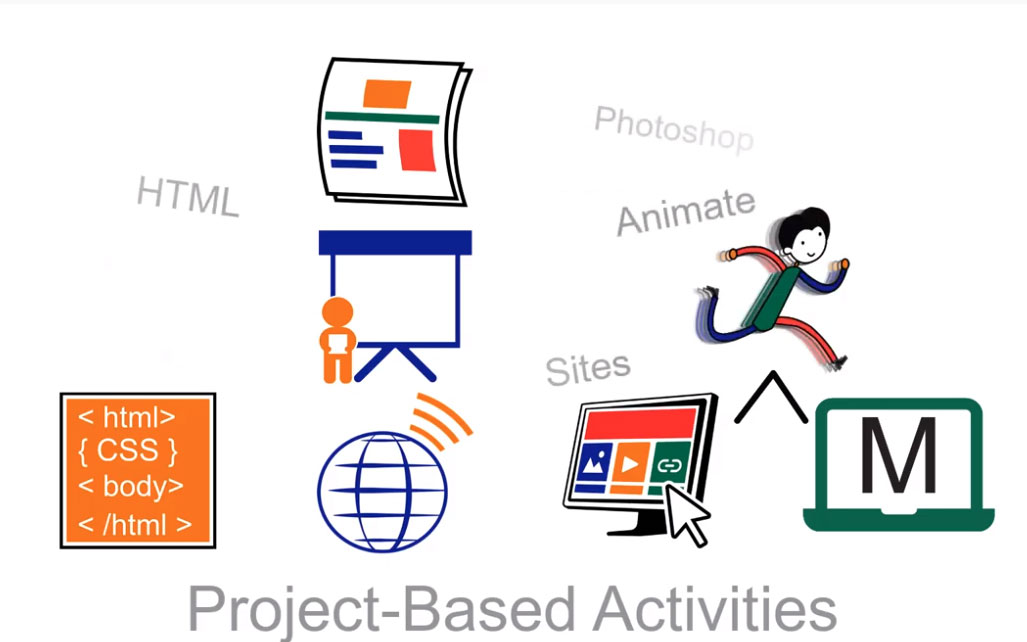Advantages of Project-Based Learning
Project-based learning can be described as a form of learning that follows a practical approach towards concepts and information. It also is a format through which the learner can gain a holistic understanding of the subject matter, as compared to stand-alone theoretical information. Theoretical approach of learning also does not equip the learner with the ability to effectively apply concepts of the subject matter, which Project-based learning does very efficiently.
TechnoKids promotes project-bases learning
The idea of project-learning and why it is an effective method of learning stems from the way humans use the information available to them. The human brain processes each piece of information coming its ways and then uses it in real world applications. That is how we learn anything and everything. And to understand a concept or idea truly.
This is where Project-based learning plays its role as an effective method of learning. Activities, Reports, Class projects, and so on are only some of the most common ways project-based learning benefits the learner, while also making it engaging and even fun to a certain degree.
The application of a concept requires not only an in-depth understanding of the concept itself, but also several skills to execute the ideas and build a strong foothold on root concepts. Therefore, Project-based learning is regarded as an interdisciplinary activity. Since it requires the learner to fully understand and apply concepts from various disciplines.
Practical learning can be taken a step further with collaborative work, such as group projects, debates, discussions, and so on. This allows for the student to learn in conditions most identical to real world problems, where including the skills and information on a subject, people require the ability to communicate their ideas with clarity, to optimize and make the process more efficient.

Hands-on approach to project-based learning
The real stimuli received by a learner in a project-based form of instruction incentivizes and motivates the learner to know more and do more. Information suddenly becomes meaningful because it has a use, and you get to use it. Take a chemical reaction for example; If you were told that 2 chemicals react in a particular way, and that’s that. You wouldn’t be instantly intrigued to know why, but if you were to mix 2 chemicals, that would definitely pique interests, right? What changed? You got to try it for yourself!
Practical or Project-based learning also allows for a critical and creative line of thinking to develop. Solving real world problems requires real thinking, which is always driven by a creative or critical thinking approach. The higher-order thinking required to solve such practical problems, is what essentially is of great use in the real world. It enables the learner to have independent innovative thoughts and the ability to also execute them.

Promoting critical-thinking
The ability to apply information acquired, allows for learners to have a greater control of their learning experience which in turn benefits as a real-world application of skill and information for the learner. This encourages the learner to think independently and freely, instead of having their thought bound in a unidirectional course. The critical thinking that a learner develops during such project-based learning is crucial functionally but also developmentally.
While project-based learning has been a ‘thing’ since over a century, it still has multiple facets that are still being explored. The introduction of technology in the learning experience has pushed the ideas of practical learning even further. The open-endedness of a project allows for the learner to extract as much value from it as possible. It also greatly improves the modularity of the learning experience, since, all students can learn based on their interests and skills, while learning to perfect their respective skills. This enables the system to remove causes such as ‘lack of interest’, ‘non-comprehension’, etc, entirely from the learning experience of a student. While all students in a class learn the same subject, each student has the agency to customize their learning experience to their liking.






Recent Comments